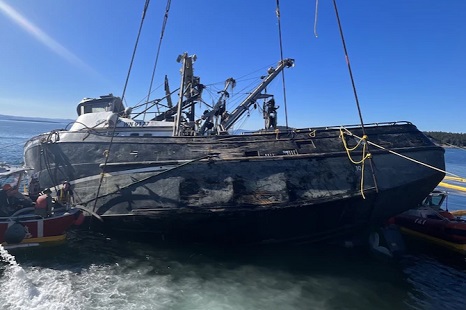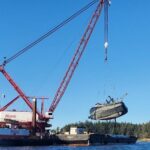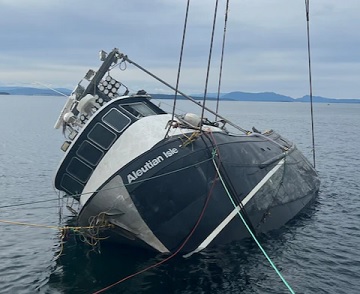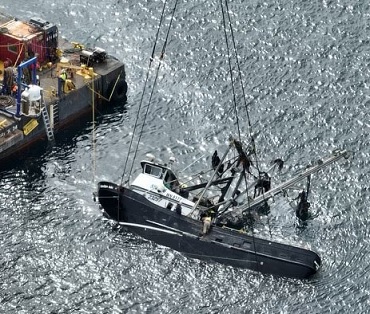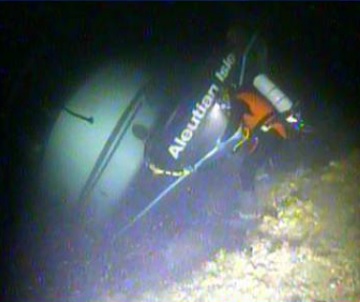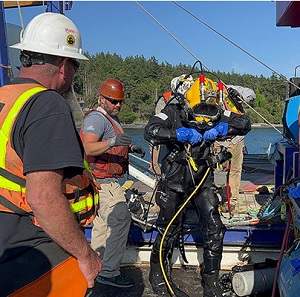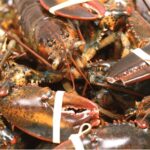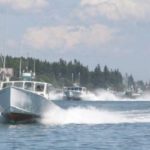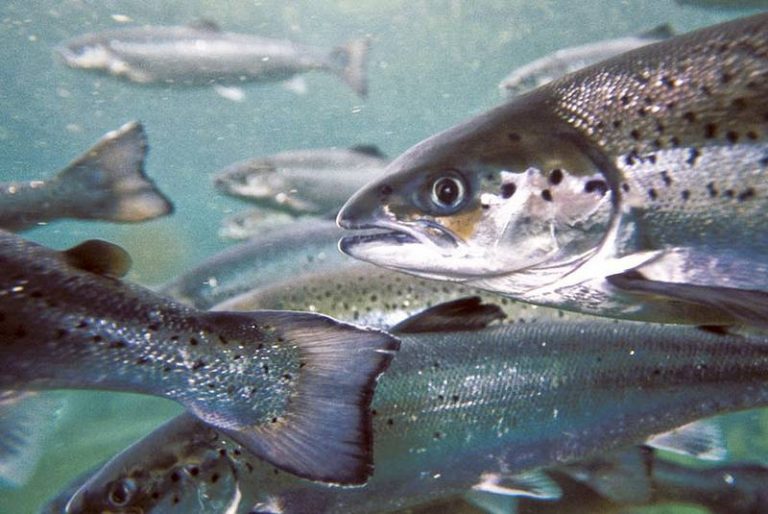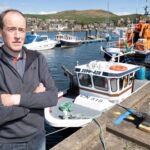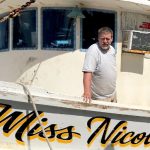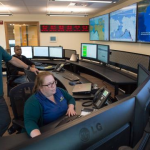Salvage crews raised a sunken fishing boat from the bottom of the sea near San Juan Island Saturday, but they have been unable to remove enough fuel and seawater from the vessel to lift it onto a barge and transport it away from the critical orca habitat where it sank 5 weeks ago. The F/V Aleutian Isle, a 58-foot salmon fishing boat, released a 2-mile sheen of diesel onto the surface of Haro Strait when it sank. The unusual effort to lift it 240 feet from the sea floor was launched after officials decided pumping up to 2,600 gallons of diesel and oil still on board to the surface was not feasible at that depth in the swirling currents of Haro Strait. Photos, >click to read< 08:21
Tag Archives: Washington

‘We need help bringing him home:’ Family remains hopeful as search for missing crabber continues
After a crabbing boat with a three-man crew sank near Willapa Bay Sunday night, the U.S. Coast Guard has suspended its search for the one man who remains missing, but his family won’t give up hope. The Coast Guard rescued two of the three men, but did not find 24-year-old Bryson Fitch, a father of three. The Coast Guard on Twitter posted a video and said a helicopter crew from Astoria, Oregon, hoisted two people from a life raft into the helicopter during rough weather and large waves. It was then that Fitch’s family got the call no one wants to hear. >click to read< 07:43

UPDATED: Search Suspended. Coast Guard, partner agencies save 2, search for missing man near Willapa Bay entrance
The Coast Guard and other agencies are searching for a missing man who was aboard a vessel in distress Sunday off the coast of Washington near the Willapa Bay entrance. Watchstanders at the Thirteenth Coast Guard District in Seattle received an Emergency Position Indicating Radio Beacon transmission Sunday at approximately 7:30 p.m. from the 46-foot crabbing vessel Ethel May near the Willapa Bay Entrance. Watchstanders at Coast Guard Sector Columbia River in Warrenton, Oregon, were notified that the wife of one of the men aboard the vessel called 911 to report an emergency aboard the vessel. Video, >click to read< 18:50
Updated: Search for Missing Fisherman Suspended – The U.S. Coast Guard and partner agencies suspended search efforts at 5:30 p.m. Monday evening for a missing man in Willapa Bay, Washington. Rescue crews completed 18 different search patterns, covering 290 sq. miles during over 15-hours of searching. >click to read< 13:51
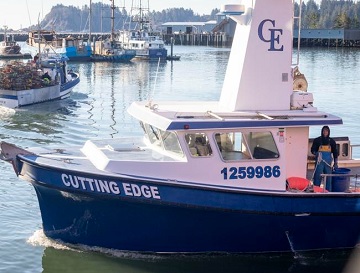
Ilwaco, Washington: Crabbers pinched
“Last year we got a good price. This year we’re probably not getting a very good price,” said F/V Cutting Edge owner Brian Cutting, upon returning to port for his second load of pots on Sunday morning. “We haven’t heard numbers out of here, probably when we bring our first boatload of crab, but we’ve heard numbers out of other places. It’s going to be unknown here, we’re not sure yet,” Cutting said. Cutting, now entering his 39th season as a vessel owner, said this season would likely be a short one for him and his crew due to the price of crab combined with rising fuel and expense costs. 12 photos, >click to read< 16:59
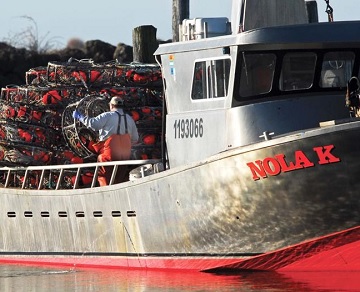
Storm clouds gather over local crabbing fleet
The morning was frozen, clear and calm, far better than many “dump days.” Sunday marked a first chance to start making some money after two months stuck in port. Most crabbers wouldn’t have been to bed overnight before placing their first pots. Some squeeze in more dump runs before Wednesday morning, Feb. 1, when a nearly nonstop frenzy of harvest and delivery will commence and last for weeks. With little or no sleep leading to exhaustion, the Dungeness fishery off Washington and Oregon is among the most dangerous jobs in the country. Winter weather and ocean conditions can be crazy. Fatalities are all too common, while crabbers barely bother mentioning all the back injuries, damaged fingers and a litany of other mishaps. Even so, there are plenty of local guys who don’t want it any other way. They see risk as the price of freedom. >click to read< 07:48
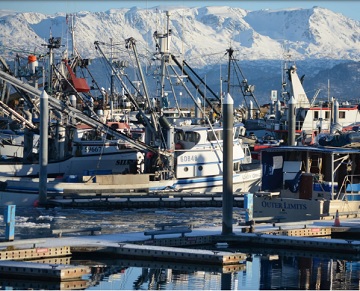
Lawsuit threatens to shut down Southeast salmon troll fishery
An ongoing lawsuit by a Washington State environmental group is threatening to shut down the Southeast Alaska salmon troll fishery in the summer and winter to help endangered Puget Sound orca whales, and has prompted the trollers to ask the City of Sitka to help pony up for legal bills. The Seattle-based group Wild Fish Conservancy filed suit last year and a federal court ruled last August that the National Marine Fisheries Service had violated the Endangered Species Act and the National Environmental Policy Act in approving salmon harvests in the Southeast troll fishery, which catches chinook salmon, a key food source for the Puget Sound orcas. In the meantime, lawsuits and rulings are continuing. >click to read< 08:36

Commercial Fisherman Alf Ludvig Forde of Mukilteo, Washington has passed away
Alf Ludvig Forde (80) died peacefully at home in Mukilteo, Washington in the early morning January 4th, 2023 of natural causes. Alf was born November 9th, 1942 to Alf and Odney Forde in Ketchikan, Alaska. Alf was an Alaskan commercial fisherman. He started fishing on his dad’s boat at a young-age, eventually owning 2 halibut longliners and 3 Bering Sea crab boats. Alf built his business through hard work and honesty. He was respected as an extremely fair person not only with partners, but also among crew, fish buyers and professionals throughout the industry and beyond.
Alf’s greatest personal achievement was his family. >click to read< 15:26
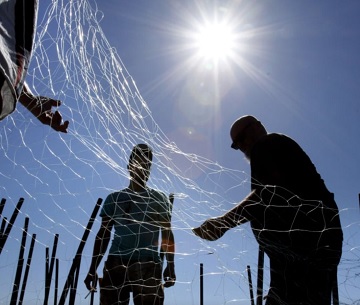
Days of gillnetting on lower Columbia River may be numbered
Senate Bill 5297 would remove nontribal mainstem gillnet use in the Columbia River downstream of Bonneville Dam to off-channel locations beginning in 2025. Tribal gillnetting in the Bonneville, The Dalles and John Day reservoirs would be unaffected by the bill. “It’s amazing to me that our state would be so incredibly inconsiderate in proposing such a thing,” said longtime gillnetter Irene Martin of Skamokawa. Martin argued that the legislation would jettison the Columbia River Interstate Compact, a bistate agreement between Washington and Oregon that manages commercial fishing on the lower Columbia River. >click to read< 12:44
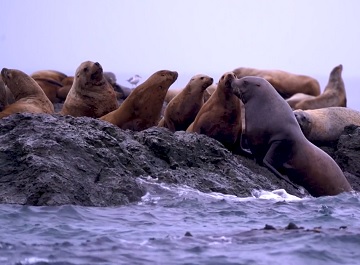
Sea lions, seals might be hampering WA salmon recovery. What can be done?
State officials are now exploring whether to kill sea lions and seals in the Salish Sea and outer coast in a desperate effort to save salmon species from extinction. A new report commissioned by the state Legislature and completed by the Washington Academy of the Sciences says seals and sea lions are likely impeding salmon recovery, and the full impacts of predation on salmon may not be fully understood without lethal intervention. Three mammals specifically have skyrocketed. From 1975 to 2015, the harbor seal population in the Salish Sea exploded from about 6,000 to around 50,000. And California sea lions rose from 50,000 to somewhere around 300,000 on the West Coast of the U.S., according to the Northwest Indian Fisheries Commission. Populations of Steller’s sea lions living around Washington, Oregon and California steadily rose from an estimated 15,000 in 1982 to more than 43,000 in 2019. >click to read< 09:14
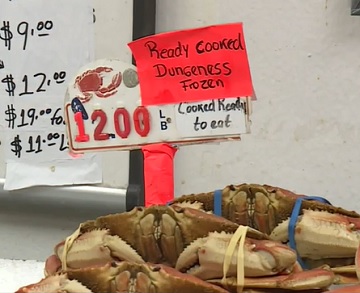
California crab season finally opens but storm keeps fisherman in port
Commercial crab season opened in California on Saturday, but in Monterey, fishermen were keeping their vessels in port because of the storm. “If it’s not one thing, it’s another,” said Gaspar Catanzaro with Monterey Fish Co. The commercial season opener has been delayed three times this year but officially opened at midnight on New Year’s Eve. The opening coincided with a winter storm bringing rain and high winds to the coast. To meet the holiday demand for crab, Monterey Fish Co. has been bringing in crab from Alaska, Washington and Oregon. Video, >click to read< 10:04
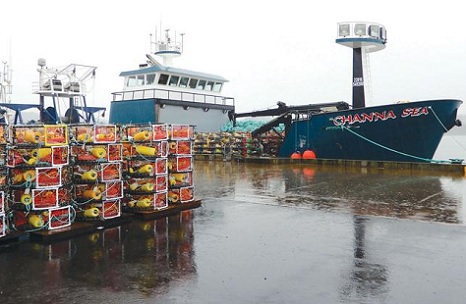
Dungies beyond crabbers’ grasp
The delay in starting the crab season, now stretching into its first month,,, “People have no idea how much money Dungeness crab bring into Newport,” said Casey Cooper, a third-generation fisherman who was rigging the steel-hulled Leslie Lee with crab pots at Newport’s International Terminal. “From car dealers to grocery stores, everybody’s waiting for this huge annual infusion of cash.” Businessman Dean Fleck of England Marine supplies the crab fleet with rope, buoys, crab pots and other fishing gear. He said the delay is being felt up and down the waterfront, where hundreds of workers from deckhands to processors are idled. He claimed each dollar generated by crab fishing is “brand new” to the local economy, with the potential to rebound seven times. >click to read< 15:41
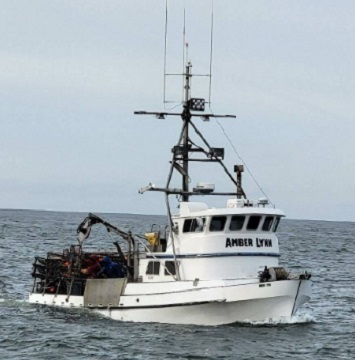
Fishermen ready for start of crab season amid price, start date uncertainty
“I’ve been crab fishing since I graduated from high school in 2007,” said Robert Mirante. “This is my fifth season running a boat as an owner-operator.” Robert comes from a family of fishermen; his father fished for decades, and he and all his brothers run their own boats. “That’s what we do for a living,” Robert said. Uncertainty about the start date of this year’s season, pushed back later by low crab numbers just this past Thursday, affects the entire community, said Perry Graham, captain of the Amberlynn. “It’s always stressful — it is — not knowing. It’d be nice to have your set days to know when to work,” Graham said. “You’re rushing, rushing, rushing to get ready and then you might sit there for a month or two.” Photos, >click to read< 19:00
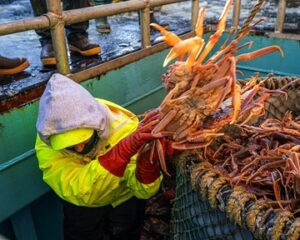
$300M in fisheries disaster relief makes it into federal spending bill
A massive congressional appropriations bill made public Tuesday includes $300 million in disaster assistance for fishing families and communities buffeted by downturns in Bering Sea crab as well as some Alaska and Washington salmon harvests. The full House and Senate still need to vote on the spending package. The $300 million in Alaska and Washington fisheries disaster funds is aimed at direct payments to crabbers and fishers and support for research and habitat restoration, according to Washington Democratic Sens. Maria Cantwell and Patty Murray. The Washington and Alaska congressional delegations joined together to press for a fisheries disaster declaration made last week by U.S. Commerce Secretary Gina Raimondo.The full House and Senate still need to vote on the spending package. >click to read< 16:06

Disaster declaration unlocks potential federal aid for Alaska crabbers
A Commerce Department disaster declaration for Bering Sea crab and some Alaska and Washington salmon fisheries sets the stage for an end-of-the-year push to secure federal funds to help fleets and communities. The declaration announced Friday covers the Bristol Bay king crab harvests suspended for the past two years, and the snow crab harvest that next year will be canceled for the first time ever. Other fisheries covered by the declaration include the 2021 western Alaska Kuskokwim River salmon harvests as well as 2019 salmon fisheries in the Puget Sound and the 2020 Washington ocean salmon fisheries. >click to read< 08:04
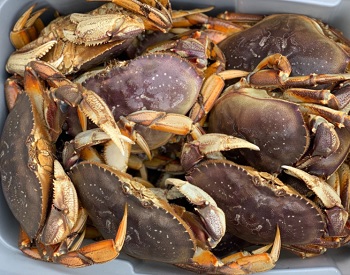
Latest round of Dungeness crab testing to conclude Tuesday
The second round of domoic acid and meat-quality testing for Dungeness crabs in Oregon, Washington and California is scheduled to conclude Tuesday as the commercial crabbing industry waits for an opening date. The results, which Oregon Department of Fish and Wildlife officials say are likely to be published by Wednesday, will determine if the coast’s commercial Dungeness crab season will open, or if the industry can expect more delays. >click to read< 09:58
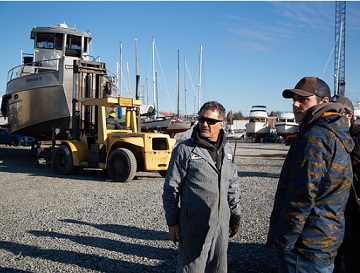
Maritime apprenticeship program seeks to fill labor gap
The students began training with the Northwest Maritime Apprenticeship, a four-year program that will arm them with skills and experience and provide desperately needed labor to the maritime industry in the county, said Deb Granger, apprenticeship training coordinator. Students in the program attend one night class a week and one Saturday workshop per month, from October through May, to learn about 12 marine-specific technical training subjects, including equipment and gear installations, boat design, electronics, building materials, rigging and safety. At the Landings at Colony Wharf in Bellingham on Nov. 12, students learned about “docking, hauling and blocking” with one of the boatyard’s owners. Photos, >click to read< 12:43
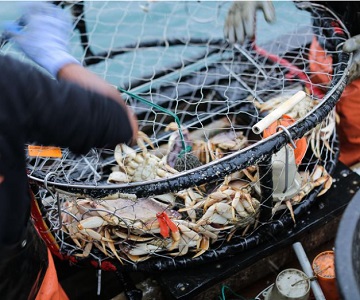
Here’s why the West Coast Dungeness crab season has been delayed
Oregon’s most valuable commercial fishery, Dungeness crab, will have its season delayed from its traditional Dec. 1 start date because of low meat yields. Testing shows the crabs in some ocean areas off the West Coast don’t have enough meat in them to satisfy the commercial market. In some areas, testing also showed elevated levels of the naturally occurring toxin domoic acid, which can make the crabs unsafe to eat. ODFW conducts tests out of six major crabbing ports in partnership with the Oregon Dungeness Crab Commission and the Oregon Department of Agriculture. Oregon, California and Washington coordinate on commercial season opening dates, and the other states will also be delaying their crab season until at least Dec. 16. >click to read< 12:10

Fine quadrupled for repeat offender “paper captain” violation
Further investigation after a vessel operator declined an October notice of violation issued by the Coast Guard uncovered the operator in question had previous violations of the Jones Act. The initial fine of $3,000 has been increased to $12,968.50, the calculated average penalty for a repeat violator, said Lt. Cmdr. Colin Fogarty. “The violator, John D. Gibbs, declined it,” Fogarty said in a phone interview. “When the (notice of violation) is declined, it becomes a civil penalty.” Fogarty said enforcement elements targeted the vessel, the F/V Southern Horizon, because of information gathered. We went onboard, and the captain admitted to being a paper captain.” >click to read< 09:50
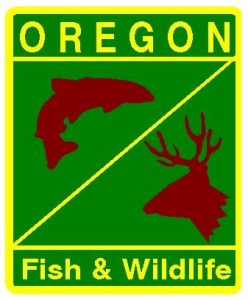
Oregon: Ocean commercial Dungeness crab season delayed
The ocean commercial Dungeness crab season opener is delayed until at least Dec. 16 for the entire Oregon coast. Pre-season testing shows crabs are too low in meat yield in some areas. Elevated domoic acid also was detected in some crab viscera (guts). Targeted to open Dec. 1, Oregon’s ocean commercial Dungeness crab season can be delayed so consumers get a high-quality product and crabs are not wasted. The next round of crab meat yield and biotoxin testing will occur in the coming weeks. Results help determine if the season opens Dec. 16 or is further delayed or split into areas with different opening dates. >click to read< 11:41
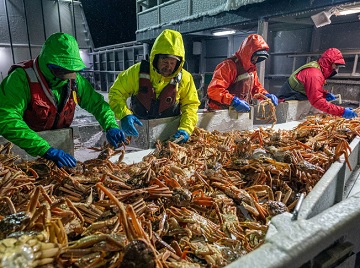
Alaska, Washington senators team up to seek disaster declaration for closed crab harvests
Sens. Lisa Murkowski and Dan Sullivan of Alaska and Sens. Patty Murray and Maria Cantwell of Washington sent the request to U.S. Commerce Secretary Gina Raimondo. The senators asked the secretary to act “as quickly as possible” to invoke the disaster declaration provision of the primary law governing marine fisheries, the Magnuson-Stevens Fishery Conservation and Management Act. “Many of these fishermen and businesses hail from both Alaska and Washington, and the impacts of these fishery disasters extend far beyond our states to consumers across the United States and the world,” the senators’ letter said. The State of Alaska puts the estimated loss of ex-vessel value – the amount paid directly to fishers for their catches – at $287.7 million,,, >click to read< 09:16
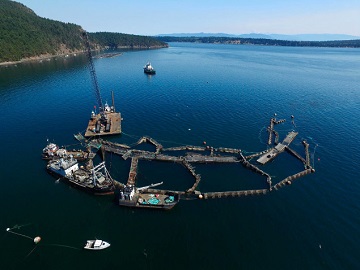
Washington: State won’t renew leases for Puget Sound fish farms
No more Cooke Aquaculture fish farms in Puget Sound. That’s the message the state Department of Natural Resources delivered Monday morning when the agency decided not to renew the last of the fish-farming company’s leases on net pens here. The company’s last net pens in Puget Sound are located in Rich Passage near Bainbridge Island and Hope Island in Skagit Bay. Cooke has until Dec. 14 to wrap up steelhead farming and begin deconstructing their equipment, according to DNR officials. According to letters sent from DNR to the company Monday, Cooke had a history of failing to comply with the provisions outlined in agreements. >click to read< 10:07
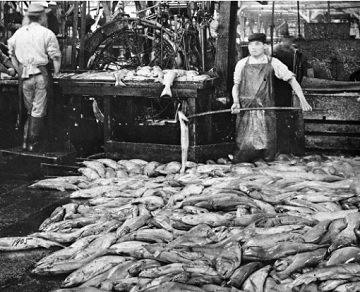
The Rise and Fall of Pacific American Fisheries: Fairhaven’s Historic Salmon Cannery
Before becoming part of Bellingham, Fairhaven grew up along railway lines. The town boomed with the region’s industries — fishing, lumber, and mining — into the 1870s, seeking the Northern Pacific Railway terminus. After the railway instead went to Tacoma, in 1873, multiple economic panics drove Fairhaven into a depression by the 1890s. However, Fairhaven soon found economic revitalization in what would become the largest salmon cannery in the world: Pacific American Fisheries. Whatcom County’s early settlers viewed the salmon crowding every stream as an almost inexhaustible resource. Fisheries would prepare salmon fresh, dried, salted, or smoked, but turned most into hog feed and fertilizer. Whatcom County had 11 large canneries by 1899, but many shuttered within years due to mismanagement. >click to read< 18:10

Letter: Columbia River Non-Tribal Gillnet Fishery Is No Threat to Recovery of ESA-Listed Salmon
Salmon management should be based on the best available science, but the efforts Sen. Wilson praises are not supported by the science. The commercial gillnet fishery harvests within all management guidelines, The non-tribal gillnet fishery in the lower Columbia is an important part of the cultural fabric of Washington state. It is a component of a commercial fishing industry that provides hundreds of year-round jobs in rural Washington and has for 150 years. Commercial fishermen were deemed “essential workers” during the pandemic because they harvest protein to feed residents of the Northwest and of the world and contribute substantially to Washington’s food security and the state economy. >click to read< By Robert Sudar, Longview 19:58
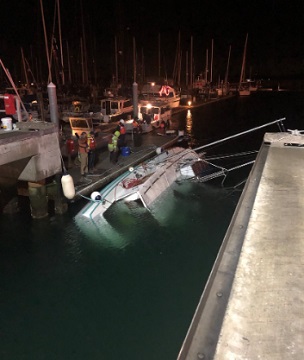
Sinking trawler safely pulled from Port Townsend Bay
Quick thinking and fast action helped to prevent a sinking trawler from turning into something worse. “Galaxy,” a 38-foot wooden fishing vessel, began taking on water about one nautical mile off of Boat Haven Marina around 4:30 p.m. Thursday, Sept. 29. The owner of the boat, who was the only one aboard, called 911 and launched Coast Guard Station Port Angeles and East Jefferson Fire Rescue into action. Luckily, the owner had already contacted a commercial salvage operation, which was able to bring the boat into the marina where it was removed from the water Thursday evening. >click to read< 10:24
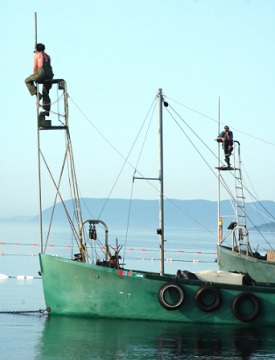
On the Puget Sound, the Women Whose Lives and Work Revolve Around Salmon
In the town of Bellingham, Washington, everyone knows when the salmon run come fall. Shimmery silvers and chum salmon break the chilly water’s surface with their heads, as they move through the Puget Sound and tributary rivers to their spawning grounds. Locals buzz, telling one another when they’ve seen them, admiring the fish on their journey. But for Ellie Kinley, this isn’t just a fall spectacle. She thinks about these fish 365 days a year. There’s a strong and sometimes overlooked community of fishing families here. The Lummi have the largest tribal fishing fleet in the nation, according to Kinley; the port is also home to fishing families, native and non-native alike, who use Bellingham as their home base between fishing trips to Alaska and California. Photos, >click to read< 17:44






